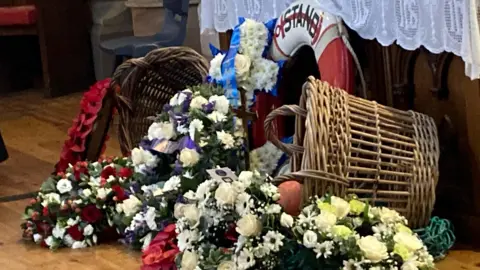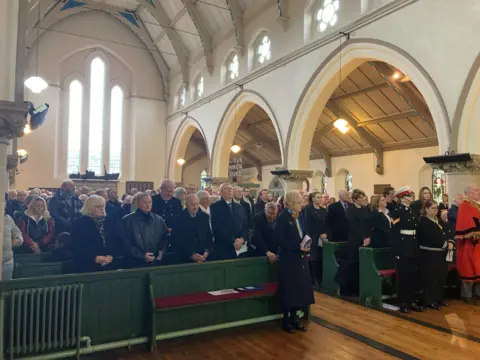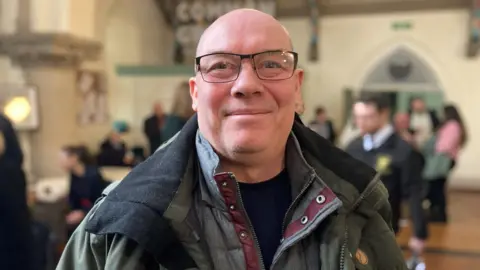Service remembers over 6,000 lost trawlermen
 BBC
BBCA service to commemorate Hull's lost trawlermen took place in Hull on Sunday.
Lost Trawlerman's Day is an annual event marked with a gathering at St John the Baptist Church, known as the fisherman's church.
It is estimated that over 6,000 trawlermen have been lost from the port city of Hull.
Ruth Creasey, the chairwoman of St Andrew's Dock Fishing Heritage Group (STAND), which organised the service, said it was important to come together and "share those losses".
The Lost Trawlermen's Day commemorations are held on the last Sunday in January every year.
Ms Creasey said the lost men were "going out to put fish on our plates... they'd go out to work long hours in dreadful conditions."

This year's service also marked the 70th anniversary of the loss of the trawlers Lorella and Roderigo. Forty crewmen lost their lives when both boats sank in a snow storm off the coast of Iceland on 26 January 1955.
Andrew Hunter's grandfather Ernest died on the Lorella, and attended the service.
"I never knew my grandad," Mr Hunter said: "it was "difficult to sing along... because you get choked up.
"To have him kept alive like this is wonderful."

During the service, children from Chiltern Primary School choir sang I, the Lord of Sea and Sky.
Ms Creasey said: "It's important they (children) learn of Hull's history because at one time, Hull was the largest deep sea fishing port in the world.
"It's our job to make sure the legacy of the fishing industry and its importance remains alive."
Historian and author Dr Brian Lavery added: "You ignore your history at your peril.
"This is an integral part of the city. This paid for a lot of what we have in this city today, and for what the city is today, much of it is owed to those men who left this port never to return."
Listen to highlights from Hull and East Yorkshire on BBC Sounds, watch the latest episode of Look North or tell us about a story you think we should be covering here.
